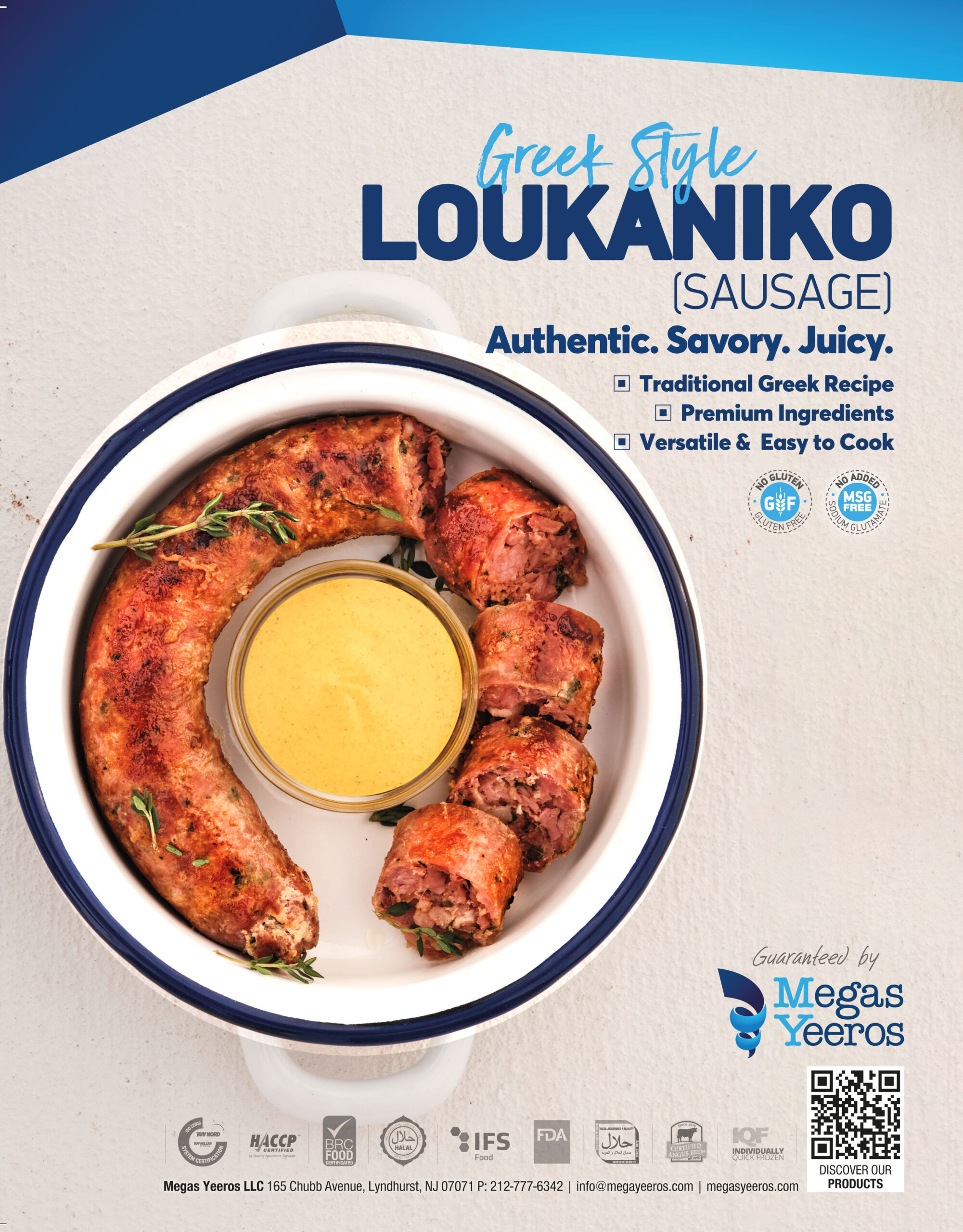Hitting the High Notes
Posted by estiator at 21 April, at 10 : 04 AM Print
COVER STORY
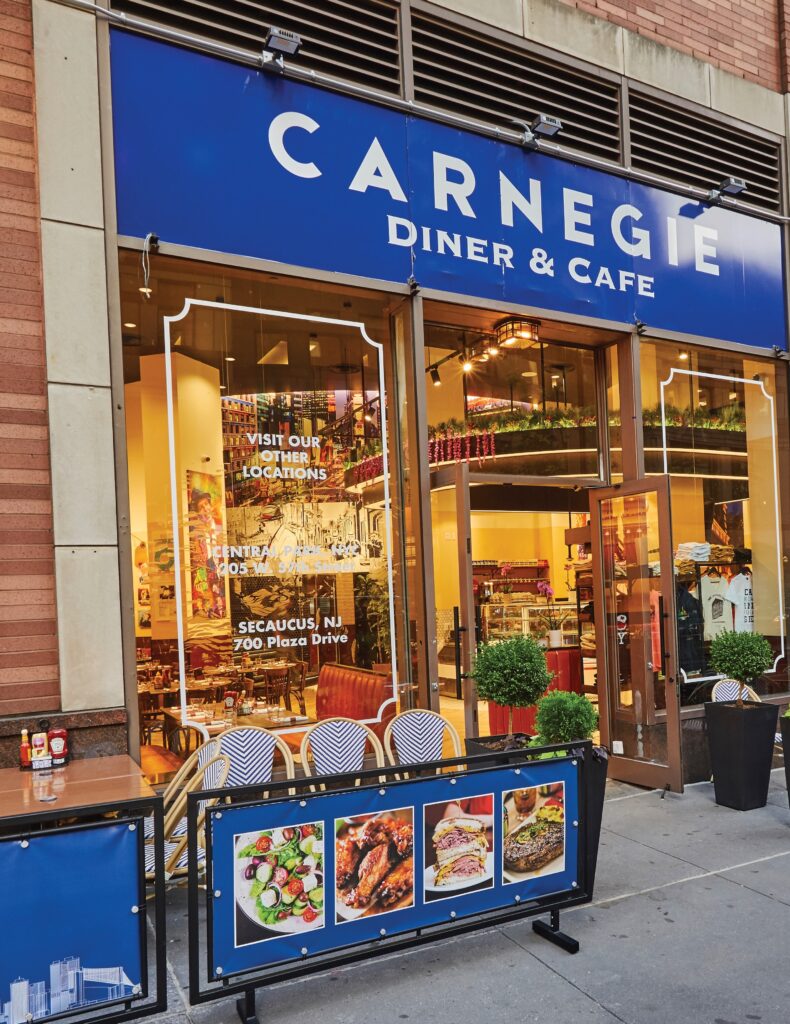
With NYC’s Carnegie Hospitality, Stathis Antonakopoulos creates a hit. By Michael Kaminer

Even as an 11-year-old busboy in his grandfather’s seaside restaurant in the village of Likoporia, Stathis Antonakopoulos knew hospitality would be his future. “I worked there until I was 18, and I realized that this is what I love and what I wanted to do with my life,” he tells Estiator.
Today, Antonakopoulos has realized his dream. Carnegie Hospitality, the company he’s built with partner Peter Xenopoulos, has prevailed against headwinds in New York’s brutally competitive restaurant business.
Their three Carnegie Diner & Café locations ― two in Manhattan, one in New Jersey ― see lines of hungry fans daily. A fourth location is set to open this year. Pizza & Shakes, across from the famed Carnegie Hall, has become a hit with locals and tourists. And three wildly successful ghost kitchens ― Organic Burger House, NYC Pancake House, and NYC Pastrami House ― have been riding New York’s skyrocketing delivery business.
Antonakopoulos says there’s no esoteric secret to the company’s success. “We’re driven by the need to please our guests,” he says. “We give what feels like an open-arm hug to everyone who comes in. Hospitality is everything. It’s personal for me ― it’s how I grew up, and it’s what I want the mentality of my employees to be. It doesn’t matter if you’re in New York City for a day or live in one of the buildings where we have restaurants.
”Keeping his menus both relentlessly modern and rooted in tradition has been another part of Carnegie Diner & Cafe’s appeal, he says. “We have none of the old-style diner food, like grilled cheese or matzo-ball soup,” he explains. “Our omelettes are only made with organic eggs. Avocado toast is made with fresh avocado, cut in the moment. Burgers come with fries and organic salad. The quality of ingredients is extremely important.” Mindful eating, he notes, has long been part of his life. “My wife, Hrisa Gatzoulis, is an environmental scientist, and we’ve been eating organic for years.
“We give what feels like an open-arm hug to everyone who comes in. Hospitality is everything.”
”High-quality ingredients also means paying higher prices for provisions, which has become a huge challenge for Antonakopoulos and Xenopoulos. “Organic eggs, for example, had doubled in price last year, and now cost us three times as much as in 2023,” he says.
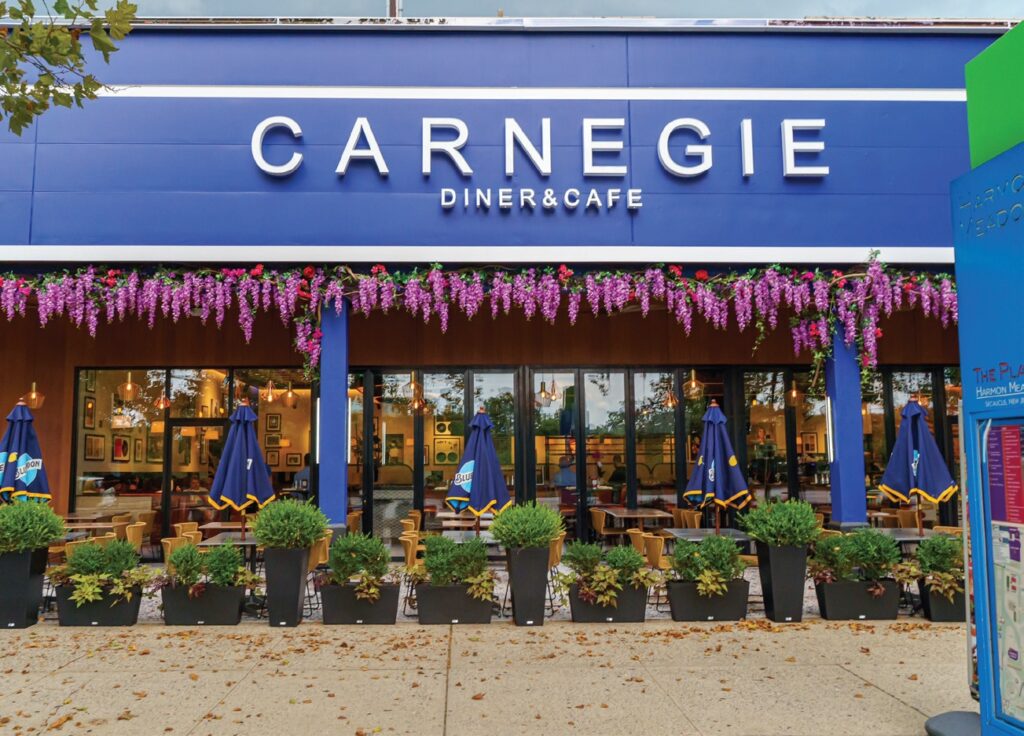
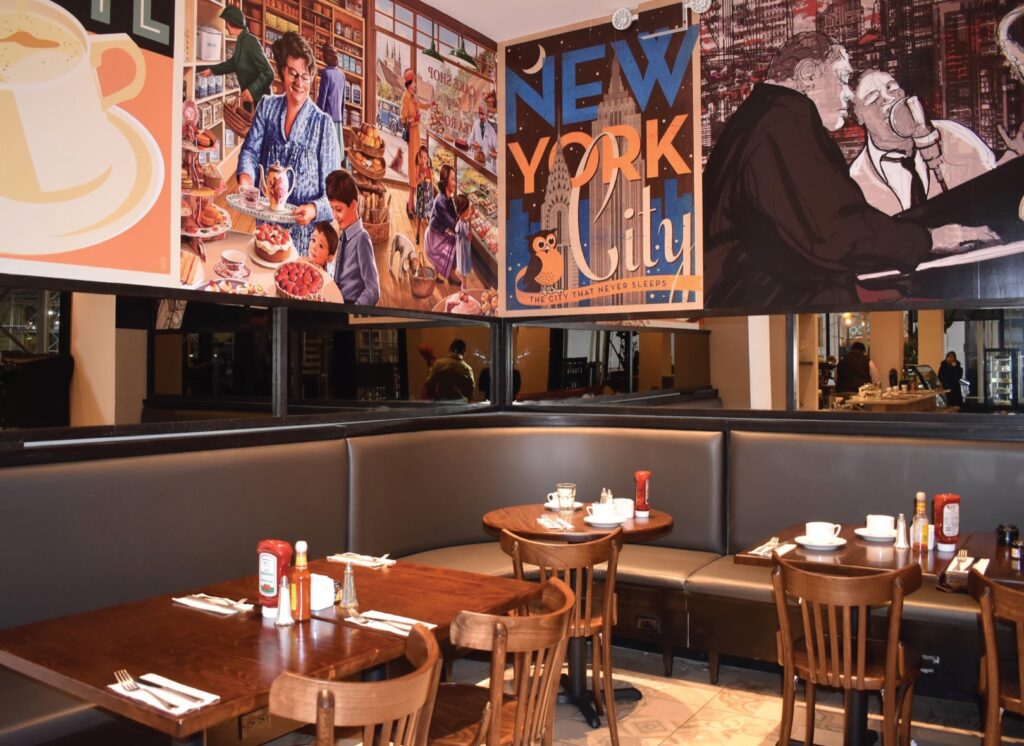
“Since the pandemic, we’ve been forced to increase menu prices significantly. But we’re resisting any further increases, even though vendors keep upping their prices,” he says. “We can’t pass those increases on to customers. Salaries haven’t caught up with price jumps—that’s a core reason of why we have inflation. But everything’s expensive for us. Commercial rents are back to pre-Covid levels. Labor is 30 percent more expensive than before the pandemic. Ingredients are 40 percent more costly. But it’s not fair for someone to pay $25 for a burger.
”Ironically, price resistance from customers has been tempered somewhat by moves at McDonald’s and other chains. “It’s actually a good thing that the big players are also feeling the heat,” he says.
“When a Happy Meal costs $15, it helps justify any increases of ours. But at the same time, enough is enough. People are not spending the way they used to, ordering an app, main, and salad. Now, they’ll get just one plate. That’s why we make our plates as large as possible. We want them to feel they’re getting their money’s worth.
”A vocal advocate for New York’s restaurant industry, Antonakopoulos has also become a frequent and fear-less voice in media coverage about industry challenges. When New York’s State Assembly introduced a bill that would require tipped workers to earn $17 per hour plus tips by 2028, Antonakopoulos took to the airwaves. ““You’re going to have to pay $40 to have an omelette, because we cannot afford that,” he told NY1News.
When residents of West 57th Street in Manhattan tried characterizing outdoor seating as “a three-ring circus,” Antonakopoulos spoke for the street’s small-business owners. “We feel like pawns in a chess game that we have no control,” he told New York’s NBC News 4. And when the New York Post covered social-media nuisances who try to outdo each other with outrageous “extreme” menu requests, Antonakopoulos expressed the frustration restaurateurs around the country have felt. “It doesn’t make sense. This is not in our DNA,” he told the Post.
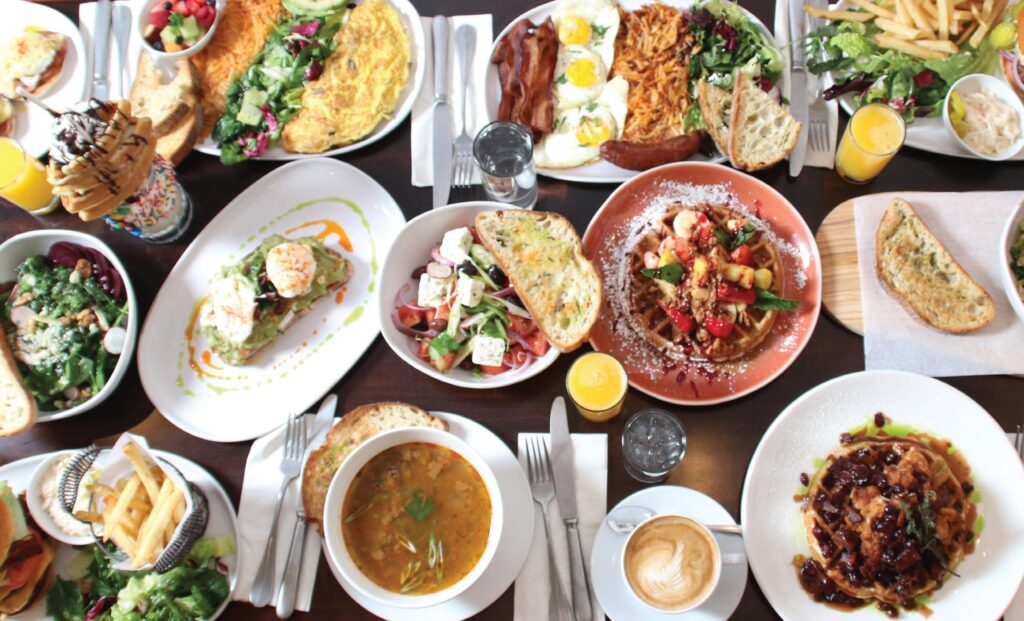
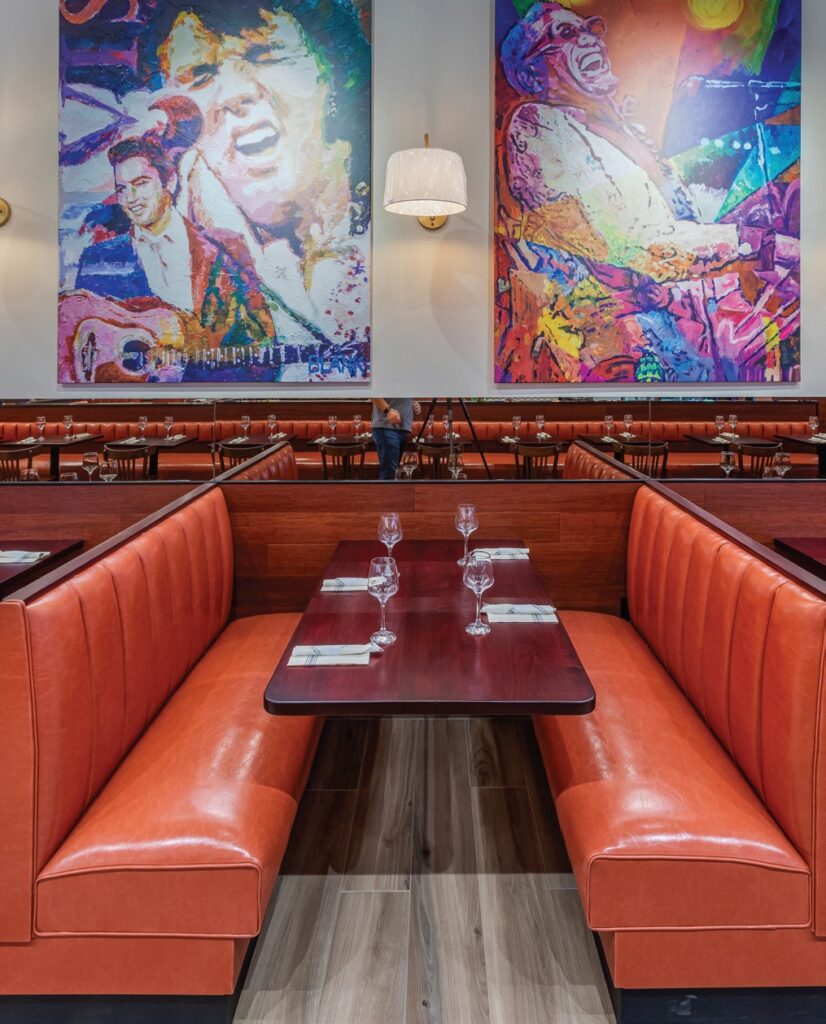
By combining that no-nonsense approach with a deep love of hospitality, Antonakopoulos has bucked the odds to create a success story at one of the most challenging times in the history of restaurants.
Antonakopoulos starts his days by visiting all of his restaurants, every morning. “I grab a coffee, talk to the opening team, and tell them, ‘Good morning, how are you, how can I make your life easier?’” he says. “Then I head to the office to deal with day-to-day operations and focus on growth plans for Carnegie Hospitality.
”His back-office team of eight works from an office on West 57th Street, above Pizza & Shakes; they’ll soon move to 1185 Avenue of the Americas, where Antonakopoulos and Xenopoulos are building their fourth Carnegie Diner & Café location. The team includes human resources, marketing, catering, and bookkeeping professionals, along with director of operations Labros Pyrgiotakis, “who is my right hand,” Antonakopoulos says.
Marketing has been a massive driver of Carnegie Hospitality’s success, Antonakopoulos says.“We’ve doubled our budget in recent years,” he notes. “It’s involved a lot of trial and error, from online ads to print to radio and television to business-to-business. The head of marketing for Coke says something great a few decades ago: ‘Fifty percent of my marketing budget is effective and 50 percent is not. If only I knew which was which.’
”Born in Athens, Antonakopoulos was raised in in the Corinthian Gulf, where his family owned Alkion, a seasonal waterside restaurant and hotel. A busboy at 11 and waiter at 15, he became an accidental operator at 18, “when the team just didn’t show up one day,” he remembers.

After fulfilling a mandatory 18-month army service, Antonakopoulos worked in hospitality around Athens. A lifelong desire to study in the U.S. became reality in 1999, when he seized an opportunity to study at New York’s Baruch College, earning a BA in marketing and a master’s degree in marketing and organizational management. Throughout, he worked as a waiter, “from Christos Steak House in Astoria to Uncle George’s,” now shuttered. “It was a great school for me. I came to understand the American type of service.”
In Greece, Xenopoulos owns and operates all TGIFridays, Pax Burgers, Anchos, and Napolitivo locations.
The entrepreneurial bug bit almost as soon as Antonakopoulos finished school, with a wholesale bakery in Queens that he ended up selling in 2006. “I didn’t enjoy the wholesale business. It wasn’t personal. I like to have contact with customers and guests,” he says.
Launches of Kellari and Stix restaurants in New York followed; Antonakopoulos built and sold Stix brand. His time at Kellari was another turning point. In2007, at the restaurant’s popular Greek Night, he met Xenopoulos, who had stopped in to take in the live Greek music. “We talked and found out he’s from the same area in Greece as my wife,” Antonakopoulos says. Sensing the possibilities in working together, the two built restaurant-consulting and catering businesses before spotting “a great location for an upscale diner” at 57th Street and 7th Avenue in Manhattan, he recalls. Carnegie Hospitality was born.
While more in the background, Xenopoulos is “incredibly seasoned, and brings the experience,” Antonakopoulos says.“He’s owned 82 restaurants in New York; the ones we ‘reopening now are numbers 83 and 84. Pax, Roast Kitchen, Café Europa, and even Chock Full O’ Nuts were operated by him,” he says.
In Greece, Xenopoulos owns and operates all TGIFridays, Pax Burgers, Anchos, and Napolitivo locations. “He’s even more of a workaholic than I am. We love to go into the restaurants seven days a week. Other people get up at home and go to work. We like to say that we get up in our houses and go home, which is our work,” Antonakopoulos says. Their group now has 242 employees. “All of this has happened organically, from the bottom up,” he says.
A vocal advocate for New York’s restaurant industry, Antonakopoulos has also become a frequent and fearless voice in media coverage about industry challenges.
Next for Antonakopoulos and Xenopoulos: expansion, and a lot of it. “We just signed a nationwide franchise contract. By the end of summer 2024, we’ll start franchising Carnegie Diner & Café. We believe we can have one location in every state―at least. That’s our goal over five years,” he says. The pair is also in talks to take the brand to Greece. “That’s some-thing I truly want to do,” Antonakopoulos says. “It would be a full-circle moment, going back to my roots with a baby that we raised ourselves.”
“Numbers Never Lie”
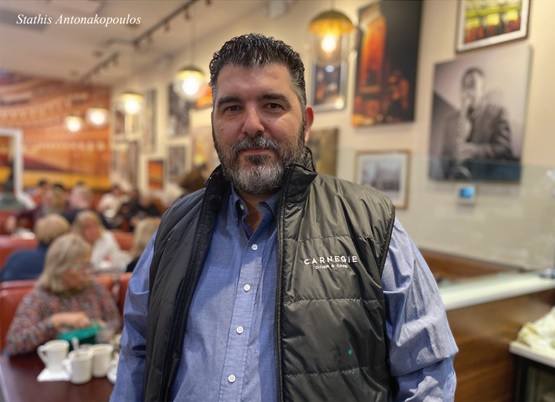
From money to marketing to Muzak, Antonakopoulos shares strategies for success.
When it comes to marketing… Most operators are very traditional in way they use it. You have to start spending money on Google ads. There’s no other way to get your message across. If you don’t spend money there, you’re staying behind, because your competition is definitely spending the money. Doing the same marketing year after year is not good enough.
My secret to finding great people… is creating a hiring profile for every job, from dishwasher to server to manager. Each profile has ten key elements I’m looking for. When interviewing, I try to cover all ten elements without asking directly. And I follow the ancient Greek philosophical tradition of indirect questions. With candidates, I won’t ask, “Are you always on time?” “Do you like to fight with people?” You try to get to the right answer by asking about personal experiences, like “What was your worst argument in a restaurant?” You can get to the personality of whether someone’s a troublemaker.
When it comes to managing finances…numbers never lie. Do your numbers daily. Know your food costs, sales, payroll. Don’t wait to do payroll at the end of the week. Do it when week starts, when you’re making a schedule. Adjust staffing during the week. If it rains or snows, or it’s just not busy, send people home early. Adjust and adapt every shift of every day. If you wait until the end of the week to see if you’re making money, you’re behind. And know what you’re ordering. Don’t over order. It’s okay to sell out. Don’t say “We ran out.” Say “We sold out.” If that happens, tell customers. Let them know you’ll have it again fresh tomorrow. It’s not okay to throw stuff out. We’re at below 0.5 percent waste in our restaurants. The average nationwide is between 1 percent and 2 percent.
For music and decor that customers love… Adapt to your neighborhood and your audience. If that means young and casual, don’t have music or decor out of sync. Your neighborhood customer is the number-one guest who will stay for the long run. For everyone else, you’re a destination. If you don’t have the support of your neighborhood, something wrong. If you haven’t renovated in a decade, it’s time, even if that means changing paint colors. You don’t have to go all out. Small touches can make it look like new restaurant.
My biggest mistake was… I prefer to call them “lessons.” Something I’ve done a few times, and maybe continue to do, is assume people will enjoy a dish because I myself love the food and plating. One was sofrito, a classic Greek dish from Corfu. It’s phenomenal. And whenever we’ve tried it, we get zero sales. Always look at the product mix of what’s selling and what’s not.








